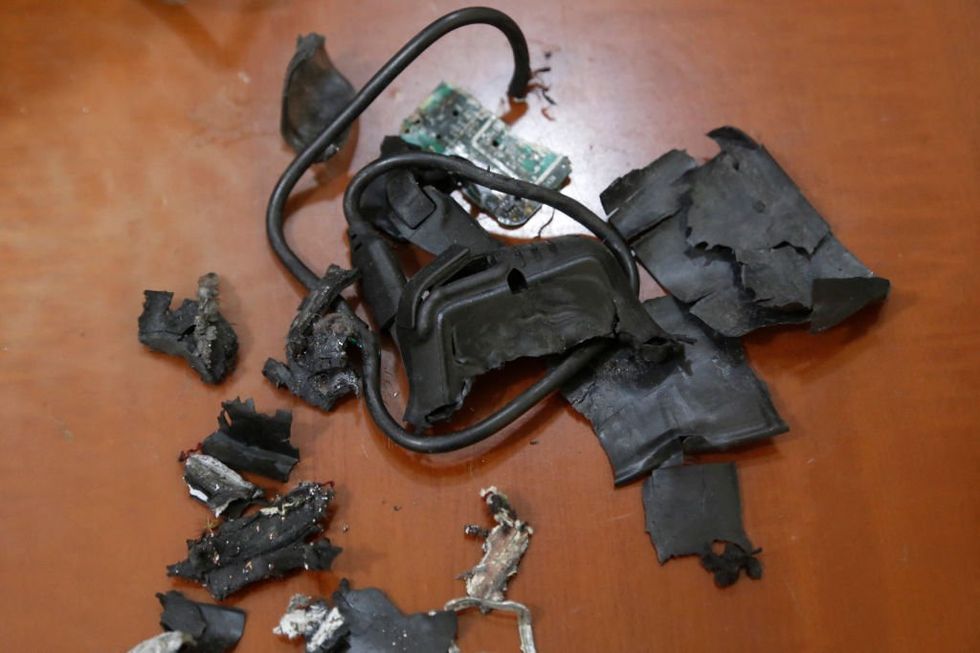Inside the stunning Mossad attack that injured thousands of Hezbollah operatives

On Tuesday afternoon, thousands of pagers suddenly exploded in Lebanon and parts of Syria, injuring over 4,000 individuals, including numerous Hezbollah militants and Iran’s top diplomatic intermediary to Lebanon, Mojtaba Amani. Eleven individuals are currently reported dead, including one young girl and the son of a Hezbollah politician. Around 200 more individuals are critically injured in hospitals as a result of the explosions. Lebanon’s government blames the attack on “Israeli aggression” and has vowed revenge.
“We hold the Israeli enemy fully responsible for this criminal aggression that also targeted civilians,” Hezbollah stated, adding that Israel will “get its just punishment.” High-ranking Hezbollah member Hussein Khalil, meanwhile, characterized the exploding pagers as the “targeting of an entire nation.”
While many Americans may support this pager strike’s overall aim or impact, the technological prowess on display shows how much damage can be done quickly and bizarrely in an interconnected world, even with simple devices like pagers.
Israel and Iranian-supported Hezbollah have skirmished at the Israel-Lebanon border off and on since Hamas’ October 7, 2023, attack. The murderous terrorist incursion on Israeli communities and a dance festival near the border with Gaza killed 1,189 individuals, the majority civilians. Of 251 hostages seized by Hamas on October 7, 101 are still being held, including seven Americans. Hezbollah has launched volleys of missiles at Israel on an ongoing basis since that time, the majority blocked by Israel’s Iron Dome missile defense system.
Israel has declined to comment on Tuesday’s pager explosions but did mention that Israel’s Shin Bet security agency had narrowly blocked an attempt by Hezbollah to assassinate a former top Israeli official just hours before the pagers began detonating. Israel also made ensuring the safe return of around 100,000 Jewish refugees displaced by conflict near the Lebanon border an official part of its war objectives on Monday night.
For its part, the U.S. State Department has claimed no involvement in or prior awareness of the attack, and spokesman Matthew Miller said the government is “still gathering information” on what exactly took place in Lebanon and who was behind it. According to Axios, the exploding pager operation was green-lighted earlier in the week by Israeli PM Benjamin Netanyahu the day after U.S. envoy to Israel Amos Hochstein told Israel to do everything it could to de-escalate the conflict with Lebanon.
Assuming the Jewish state was involved, how did operatives pull off this devastating covert strike on their enemy?
At this point, all signs point to a clandestine Israeli intervention into the production process or supply chain, by which pagers bound for Hezbollah were modified to explode at a set time. Explosives expert Sean Moorhouse commented that it appeared small explosives were installed in the devices before they reached the buyers and that the act bears all the signs of “a very successful Mossad operation.”
The New York Times reports that Israel did hide explosives and detonation triggers inside pagers that Hezbollah had recently ordered from the Taiwanese Gold Apollo pager manufacturing company. The company denied producing the pagers used in the attack and claimed that a different company had purchased a license to make them under the Gold Apollo brand. According to unnamed officials, the NYT reports, the pagers exploded when they got a message from a specific number. Hezbollah reportedly ordered 5,000 in the spring of the AP924 model, which appear to have been tampered with at the production level, to modify them with an explosive charge.
Hezbollah members were told by their leadership to stop communicating via cell phone in February so that Israel wouldn’t track them. It is unclear exactly when Hezbollah widely used the pagers. The primary target areas affected by the explosions were a suburb in the south of Beirut, an area in the Hezbollah-controlled Beqaa region of East Lebanon, and a Hezbollah-heavy neighborhood in Damascus, Syria.
Chief of the General Staff of the Israel Defense Forces Herzi Halevi holds an assessment meeting after Israeli intelligence agency Mossad allegedly planted explosives in the batteries of pager devices that detonated in Lebanon, killing nine people and injuring hundreds, on September 17, 2024. Photo by Israel Defense Forces (IDF) / Handout/Anadolu via Getty Images
Israel has successfully carried out numerous deadly targeted strikes outside its territory, including, most recently, killing senior Hamas member Saleh Arouri in Beirut and assassinating the top leader of Hamas, Ismail Haniyeh, in a deadly explosion in Iran, a strike whose origin and method is still unclear. It’s worth noting that Hezbollah also lost another of its top leaders, Fuad Shukr, during fighting in July. Israel has rigged cell phones to explode in the past and is also widely credited with sabotaging Iran’s nuclear program with the powerful Stuxnet virus in 2010.
Two things are clear about this pager explosion attack: Israel’s intelligence services are undoubtedly the most fearsome, ruthless, and skilled in the world; secondly, the expanding horizon of what is possible to do with technology continues to grow by the day, and an event like this is likely only the tip of the iceberg in terms of the kinds of unconventional attacks now possible to be carried out by both state and non-state actors.
While many Americans may support this pager strike’s overall aim or impact, the technological prowess on display shows how much damage can be done quickly and bizarrely in an interconnected world, even with simple devices like pagers. What if this power to call in highly targeted and sudden death and dismemberment were put in the wrong hands or used against patriots by an out-of-control state?
It’s worth noting that one of the revelations of Edward Snowden’s leaks was that the National Security Agency frequently installs malware and tracking devices on hardware and other packages on their way to customers in the name of national security. Also of note: Biden’s 2021 infrastructure bill has a provision that allows Big Tech to shut down cars if there’s any suspicion of drunk driving. This law, giving the National Highway Traffic Safety Administration the legal right to deactivate your vehicle, potentially goes into effect in 2026.








